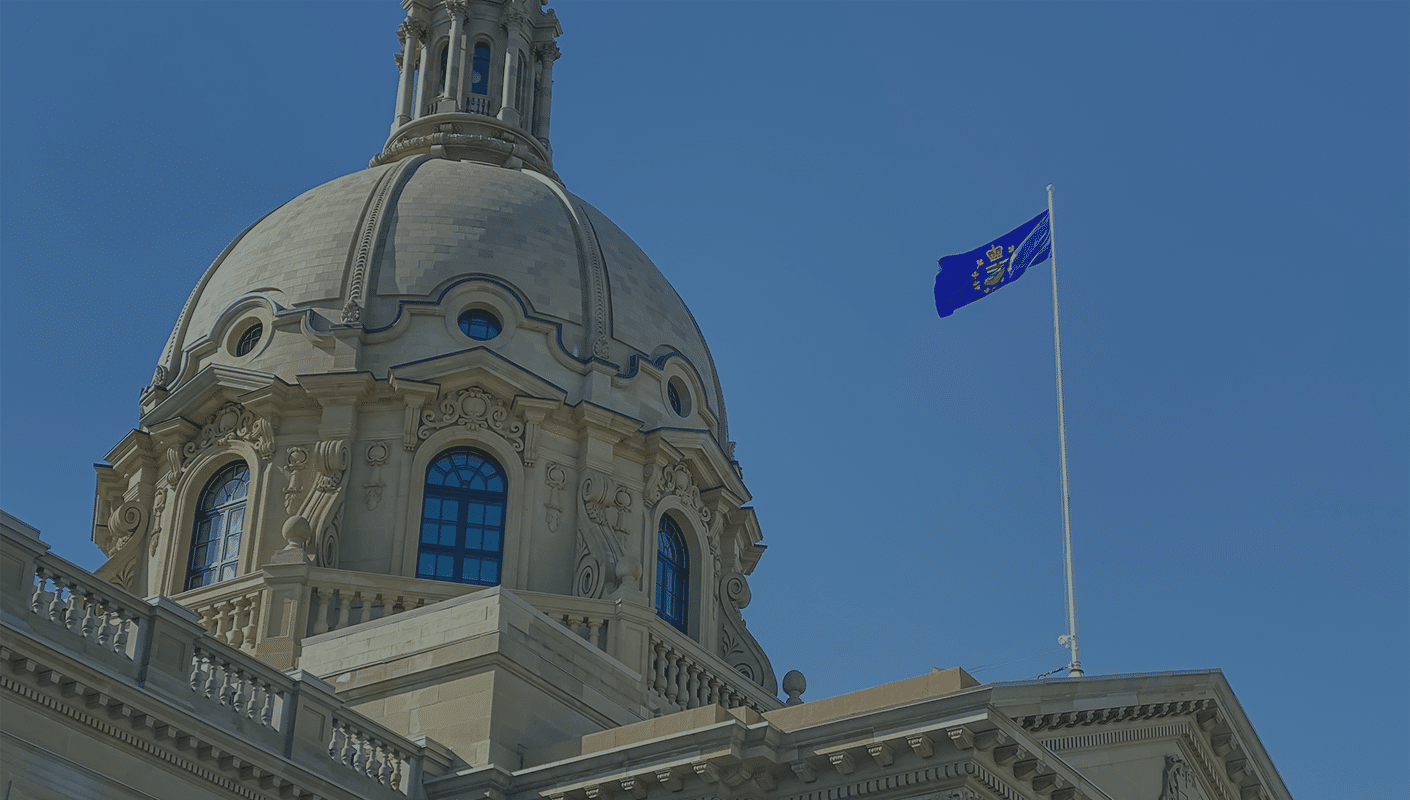Articles
<< back to all ArticlesBill 13: Understanding Alberta’s Regulated Professions Neutrality Act

Overview
On November 20, 2025, the Alberta government tabled Bill 13, the Regulated Professions Neutrality Act. This legislation, if ultimately passed and proclaimed, would create new limits on the ability of professional regulatory bodies to regulate communications by professionals – which would take precedence over other laws governing professional regulation.[1]
The introduction of Bill 13 follows a series of high-profile incidents, most notably the disciplinary proceedings brought against Dr. Jordan Peterson by the College of Psychologists of Ontario, which sparked public debate. Alberta has proposed Bill 13 to establish statutory boundaries for regulatory bodies as it relates to disciplinary actions regarding statements or expressions by professionals.
Changes for all regulated professionals
Freedom of expression
If passed, Bill 13 would prevent licensing bodies from investigating members of regulated professions for expressive conduct occurring outside of work hours. “Expressive conduct” refers to an activity or communication intended to convey meaning, excluding physical violence or property damage.[2] Certain regulatory authorities would retain the power to discipline such conduct in narrowly defined circumstances, including threats of violence, breaches of professional boundaries, misuse of professional status to harm an identifiable individual, certain forms of sexual misconduct, and conduct resulting in a criminal conviction.[3]
Mandatory education or training
The proposed legislation would also restrict the types of training that regulatory bodies may require of their members. Regulators would be prohibited from mandating education in areas such as cultural competency, unconscious bias, or diversity, equity, and inclusion. Instead, training on political, historical, social, or cultural matters may only be imposed where it is demonstrably necessary to uphold professional competence or ethical standards.[4]
Neutrality of regulators
Regulators are not permitted to undertake acts or make decisions on the basis that a person with an enumerated characteristic is either advantaged or disadvantaged or biased or privileged based on an enumerated characteristic. They also cannot give people preferential or adverse treatment to achieve diversity, equity and inclusion, based on race, colour, ancestry, national or ethnic origin, religious or political belief, conscientious belief, sex, sexual orientation and gender identity.[5]
Standard of Review
Bill 13 would establish a uniform standard of review for both courts and internal appeal bodies in cases of judicial review or appeal. Specifically, the standard of correctness would apply whenever a regulatory body’s compliance with the Regulated Professions Neutrality Act is in question, or when issues arise concerning the interpretation or application of the Canadian Charter of Rights and Freedoms or the Alberta Bill of Rights. Under this standard, a court is empowered to substitute its own judgment for that of the regulator, without deferring to the regulator’s findings or conclusions.[6]
Proclamation
If passed, Bill 13 would come into force only upon proclamation.[7] In practice, this means the legislation would not take effect immediately after receiving Royal Assent, but rather on the date the government formally declares it operative through an official order or notice. This approach may allow time for stakeholders to analyze and comment on the potential impact of the legislation.
At present, the government has not indicated how long regulatory bodies will have to adjust their bylaws, training requirements, or other governance frameworks before the legislation takes effect. As a result, regulators will need to carefully assess the implications of Bill 13, particularly in relation to their statutory mandates.
Changes to specific professions
Bill 13 would permit disciplinary action for expressive off-duty conduct only in specific circumstances, and only where the governing legislation or regulations of a profession are amended to expressly authorize such sanctions. In other words, while expressive conduct outside of work hours could still be subject to discipline, this would occur solely within the narrow exceptions outlined in the legislation and only if the relevant professional legislation or regulation is updated to provide that authority.[8]
For instance, proposed amendments to the Education Act and related regulations would allow the Minister of Education to continue disciplining teachers for off-duty expressive conduct that falls within the legislation’s exceptions, thereby ensuring student safety. Similar amendments are planned for the Health Professions Act, Legal profession Act, Professional Governance Act, Consumer Protection Act, Real Estate Act, Funeral Services Act, Horse Racing Alberta Act, and the Cemeteries Act. These updates would enable professional regulatory organizations to sanction members for off-duty expressive conduct only when it meets the legislation’s defined exceptions.[9]
Beyond these specified professions, no other regulator would have authority to discipline expressive off-duty conduct once the legislation takes effect. This means that for all other professionals and tradespeople, regulators would be barred from investigating or sanctioning members for expressive behaviour occurring outside of work, as no governing body would have jurisdiction over such complaints.[10]
Conclusion
Bill 13, the Regulated Professions Neutrality Act, represents a significant redefinition of the relationship between Alberta’s professional regulators and their members. By limiting disciplinary authority over off-duty expressive conduct, restricting mandatory training, mandating neutrality in regulatory practices, and establishing a uniform standard of judicial review, the legislation significantly limits regulatory bodies’ oversight of its members’ off-duty expressive conduct in circumstances where it otherwise may have given rise to the ability to regulate the conduct.
[1] Minister of Justice, “Protecting freedom of expression for regulated professionals” (2025), online: Government of Alberta < Protecting freedom of expression for regulated professionals | Alberta.ca> [Minister of Justice].
[2] Regulated Professions Neutrality Act, s. 5(1)(b) [RPNA].
[3] Ibid, s 5(2).
[4] Ibid, ss 7, 8.
[5] Ibid, s 6.
[6] Ibid, s 10.
[7] Ibid, s 24.
[8] Minister of Justice, supra note 1.
[9] Government of Alberta, “Regulated Professions Neutrality Act” (Fall 2025), online (pdf): Government of Alberta < Regulated Professions Neutrality Act Fall 2025>.
[10] Ibid.
This post is meant to provide information only and is not intended to provide legal advice. Although every effort has been made to provide current and accurate information, changes to the law may cause the information in this post to be outdated.

